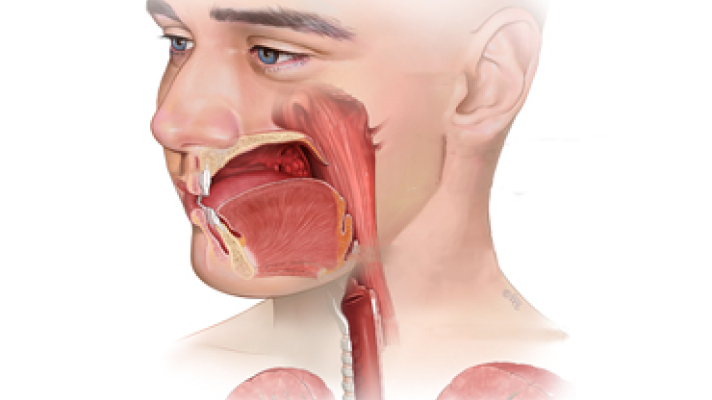Understanding Tonsil Cancer: Causes, Symptoms, Diagnosis, and Treatment
In the landscape of health, awareness is a powerful tool. Tonsil cancer, a subset of head and neck cancers, demands attention due to its potential impact on well-being. This comprehensive guide unveils the intricacies of tonsil cancer, equipping readers with the knowledge needed for early detection, understanding, and informed decisions.

What Is Tonsil Cancer?
Tonsil cancer, a form of head and neck cancer, originates in the tonsils located at the back of the throat. These almond-shaped structures play a role in immune defense and can be affected by various factors. Recognizing the signs and risk factors of tonsil cancer is crucial for timely intervention and improved outcomes.
Risk Factors and Causes
Several factors elevate the risk of tonsil cancer. Tobacco use, including smoking and chewing, increases susceptibility. Excessive alcohol consumption compounds the risk, particularly when combined with tobacco. A significant contributor is human papillomavirus (HPV), a sexually transmitted infection. HPV-positive tonsil cancers are on the rise and affect a younger demographic. Genetic predisposition also plays a role, emphasizing the complex interplay between genetic and environmental factors.
Recognizing Tonsil Cancer Symptoms
Identifying the telltale signs of tonsil cancer is a critical step toward early diagnosis. Persistent sore throat, unexplained weight loss, and difficulty swallowing are common indicators. A lump in the neck, ear pain, or changes in voice quality can also raise suspicions. If these symptoms persist for more than two weeks, seeking medical evaluation is imperative. Timely diagnosis empowers medical professionals to formulate an effective treatment plan.
Diagnosis and Staging
Diagnosing tonsil cancer involves a multi-faceted approach. Physical examinations, imaging tests like CT scans and MRI, and biopsies collectively provide insights. Biopsies confirm the presence of cancer cells, while imaging aids in determining the extent of cancer spread. Staging categorizes tonsil cancer into stages based on tumor size, lymph node involvement, and metastasis. This comprehensive assessment guides treatment decisions tailored to individual circumstances.
Treatment Options for Tonsil Cancer
A range of treatment avenues exists for tonsil cancer, dependent on factors like cancer stage and overall health. Surgery involves removing the cancerous tissue while preserving function. Radiation therapy targets cancer cells with high-energy rays. Chemotherapy and targeted therapy utilize medications to eliminate cancer cells. In advanced cases, a combination of these approaches may be employed. Treatment plans are personalized, focusing on both eradication and preservation of quality of life.
Living with and Beyond Tonsil Cancer
Surviving tonsil cancer brings unique challenges that extend beyond treatment. Managing potential side effects, such as difficulty swallowing or changes in taste, requires adaptive strategies. Regular follow-ups are essential to monitor recovery and address any lingering concerns. Emotional support and counseling play a pivotal role in helping individuals navigate the emotional and psychological aftermath of the cancer journey.
Preventive Measures and HPV Vaccination
Minimizing the risk of tonsil cancer involves adopting preventive measures. Quitting smoking and moderating alcohol consumption drastically reduce risk factors. Practicing safe oral hygiene by avoiding tobacco and limiting alcohol intake further contributes to prevention. Additionally, HPV vaccination is a powerful tool against HPV-associated tonsil cancer, particularly among younger individuals.
Future Directions and Research
Ongoing research and technological advancements are shaping the landscape of tonsil cancer management. Precision medicine tailors treatments to individual genetic profiles, enhancing efficacy while minimizing side effects. Immunotherapy, a burgeoning field, explores stimulating the body’s immune system to target cancer cells. Staying informed about evolving research equips individuals with knowledge about emerging treatment options.
Frequently Asked Questions (FAQs) About Tonsil Cancer
Q: What is tonsil cancer, and where does it originate?
A: Tonsil cancer is a type of head and neck cancer that begins in the tonsils, which are located at the back of the throat.
Q: What are the common risk factors for tonsil cancer?
A: Tobacco use (smoking, chewing), excessive alcohol consumption, and exposure to human papillomavirus (HPV) are key risk factors.
Q: What are the symptoms of tonsil cancer?
A: Persistent sore throat, difficulty swallowing, unexplained weight loss, and a lump in the neck are among the symptoms.
Q: How is tonsil cancer diagnosed?
A: Diagnosis involves physical exams, imaging tests (CT, MRI), and biopsies to confirm the presence of cancer cells.
Q: What is the importance of cancer staging in tonsil cancer?
A: Staging categorizes the extent of tonsil cancer spread, guiding treatment decisions and predicting outcomes.
Q: What are the treatment options for tonsil cancer?
A: Treatment may include surgery, radiation therapy, chemotherapy, targeted therapy, or a combination tailored to individual needs.
Q: How can individuals manage side effects during and after treatment?
A: Adaptive strategies for challenges like difficulty swallowing and taste changes, along with emotional support, are crucial.
Q: Can tonsil cancer be prevented?
A: Minimize risk by quitting smoking, moderating alcohol, practicing safe oral hygiene, and considering HPV vaccination.
Q: How does HPV vaccination impact tonsil cancer risk?
A: HPV vaccination reduces the risk of HPV-associated tonsil cancer, especially among younger individuals.
Q: What does the future hold for tonsil cancer treatment?
A: Ongoing research explores precision medicine, immunotherapy, and emerging treatments, offering hope for improved outcomes.
Conclusion
In the realm of health, knowledge acts as a shield. Armed with a comprehensive understanding of tonsil cancer, individuals can advocate for their well-being. From recognizing symptoms to exploring treatment options, this guide empowers readers with insights to make informed decisions. Early detection, coupled with advancements in treatment, instills hope for improved outcomes and quality of life.




